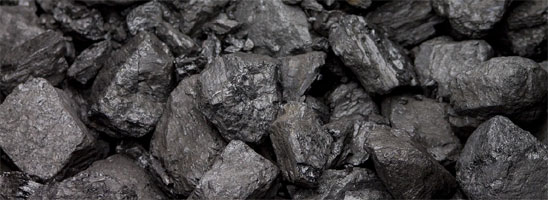Thomas was a collieryman

Thomas was a collieryman.
old Tom he was, and whittled punily
at the coal at the face at the limit
of the gallery, gnawed with utensils,
like a cultivated rat, half-naked;
and he scratched and scrabbled and scrubbed his life.
He fed the patient paddy-trains sidling
from sidings, hungry as a whippet is.
Invisible pit ponies munched air.
Din blossomed like prize marrow overnight
and fell on empty ears to deaf applause.
Loud canaries locked in iron cages
sang the blues until pathetically
they dropped, yellow feet uppermost, and dead –
unperched, unplugged and poisoned – when Tom and
his black brotherhood in disciplined boots
clocked off en masse.
The kind old pithead wheel
stretched down its cage and chains and plucked them safe
and blinking at the open empty sky.
Later, desked pit-managers would reel like
deep-sea fishermen the rescue teams home;
run checks with pale substitute canaries;
and declare the workplace safe, sterile for
surgical resumption.
Meantime, the labour-force,
mute in their funereal panoply of dust,
wend them homeward to warming tubs,
hob-nailed boots a-spark on iron pavements
bright with the hawk and spit of dormant lung
diseases.
“Pneumoconiosis”
was not then in their daily lexicon –
and “fossil fuel” something on the beach
where they wheezed their feast-week by the coach-load.
As he incubated death, old Tom swore
his son, Tommy, never would a miner be.
Yet, Tom went. Old Tom went to the dust-fields,
to the shadows and the candlelight that
spoke no romance, and to a slow, eager,
inevitable asphyxiation –
a smother, a patient drowning, that
for those who go down to the sea in ships
takes anxious, agonizing minutes, and
for those who go down to the mines encaged
takes breathless, hoarse, debilitating years.
This was what the men did in their village –
the fire that lit their way to dusty death.
Along their Calvary, some bred poultry
when eggs were brown and white and double-yolked;
some egged on mutant vegetable marrows
to die enormously in tournaments;
some fancied pigeons that, bird-brained, came home
to the tick-tock of clocks and shuttered lofts;
some nurtured whippets and muzzled them to heel
and walked them miles in dumb companionship;
some merely wedded widows down dead aisles
and fathered orphans in their lullabies.
Tom sat me on his knee. I felt the rattle
in his chest. I heard the rasping in his breath.
I smelled the tobacco, smoke and coal, and held
his hand as little children do, and knew then
the poem he breathed that I now unearth to write.
old Tom he was, and whittled punily
at the coal at the face at the limit
of the gallery, gnawed with utensils,
like a cultivated rat, half-naked;
and he scratched and scrabbled and scrubbed his life.
He fed the patient paddy-trains sidling
from sidings, hungry as a whippet is.
Invisible pit ponies munched air.
Din blossomed like prize marrow overnight
and fell on empty ears to deaf applause.
Loud canaries locked in iron cages
sang the blues until pathetically
they dropped, yellow feet uppermost, and dead –
unperched, unplugged and poisoned – when Tom and
his black brotherhood in disciplined boots
clocked off en masse.
The kind old pithead wheel
stretched down its cage and chains and plucked them safe
and blinking at the open empty sky.
Later, desked pit-managers would reel like
deep-sea fishermen the rescue teams home;
run checks with pale substitute canaries;
and declare the workplace safe, sterile for
surgical resumption.
Meantime, the labour-force,
mute in their funereal panoply of dust,
wend them homeward to warming tubs,
hob-nailed boots a-spark on iron pavements
bright with the hawk and spit of dormant lung
diseases.
“Pneumoconiosis”
was not then in their daily lexicon –
and “fossil fuel” something on the beach
where they wheezed their feast-week by the coach-load.
As he incubated death, old Tom swore
his son, Tommy, never would a miner be.
Yet, Tom went. Old Tom went to the dust-fields,
to the shadows and the candlelight that
spoke no romance, and to a slow, eager,
inevitable asphyxiation –
a smother, a patient drowning, that
for those who go down to the sea in ships
takes anxious, agonizing minutes, and
for those who go down to the mines encaged
takes breathless, hoarse, debilitating years.
This was what the men did in their village –
the fire that lit their way to dusty death.
Along their Calvary, some bred poultry
when eggs were brown and white and double-yolked;
some egged on mutant vegetable marrows
to die enormously in tournaments;
some fancied pigeons that, bird-brained, came home
to the tick-tock of clocks and shuttered lofts;
some nurtured whippets and muzzled them to heel
and walked them miles in dumb companionship;
some merely wedded widows down dead aisles
and fathered orphans in their lullabies.
Tom sat me on his knee. I felt the rattle
in his chest. I heard the rasping in his breath.
I smelled the tobacco, smoke and coal, and held
his hand as little children do, and knew then
the poem he breathed that I now unearth to write.

The Piker Press moderates all comments.
Click here for the commenting policy.